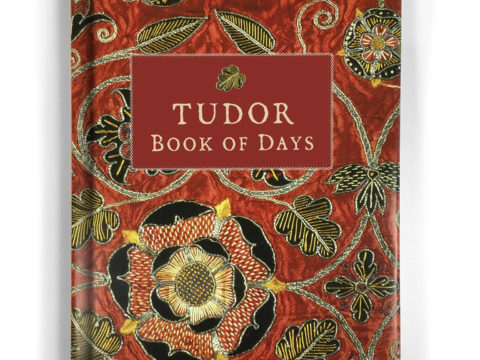John Dudley: Life Story
Chapter 17 : Dissent
In the late summer of 1550, Edward fell gravely ill, but even this threat to their position did not prevent Warwick and Somerset from clashing again. The King recovered, but, despite the cracks in the relationship between them being papered over, matters between the two rivals were permanently soured.
Warwick now had to contend with the growing problem of the Lady Mary’s refusal to accept the religious reformations. She was adamant, not only that she had been promised personal tolerance by Somerset, but that no changes in religion were legal during the King’s minority. She attended court that Christmas, and she and Edward argued on the matter until both dissolved into tears.
But Edward was determined that his sister should obey his laws – apart from anything else, it was setting a bad example to other subjects. The Council, bolstered by his stance, refused to countenance further disobedience. Warwick informed the Imperial Ambassador, who required Mary to be excepted from the law as a direct request from the Emperor, that the promise given previously was now superseded by Edward’s growing maturity.
Mary made a bold display of wealth, power and determination. She rode to London, accompanied by her household and retainers, all ostentatiously brandishing rosaries. She came before the Council, in the presence of Edward and Warwick as Lord President. A vigorous exchange of views followed. Warwick accused the Princess of trying to show the Council in a bad light to the King – they had not followed the terms of Henry VIII’s will, and she had pointed out their infractions.
The meeting ended in stalemate, but soon after Mary won a victory of sorts when the Emperor threatened to back up his requests for her to be allowed the Mass, with warships. The Council, quite unable to risk either civil or international war, backed down. Unfortunately, Edward had taken on all of the praises of him as a young king in the Biblical mould, and refused to accept their advice. More shuffling with the Emperor took place, and some of Mary’s chaplains were imprisoned.
For reasons that are not altogether clear, Warwick now began to provoke Somerset. He had absolutely vetoed Somerset’s mother (the King’s grandmother) being accorded any type of state funeral, but now allowed a grand state funeral for Edward’s Chamberlain, one of his own followers. Warwick himself took the title of Earl Marshal – previously held by the Duke.
Warwick was also making his power felt with other possible rivals – the Earl of Shrewsbury’s house was entered by Warwick’s men, and his books and papers rifled. The Earl of Derby, too, was in his sights. Rumours abounded that Somerset, Shrewsbury and Derby meant to combine either to restore Somerset, or install Mary as Regent.
Warwick instituted a new personal guard for the King. Even his supporters on the Council were nervous about the idea – with the guard captained by Warwick’s men, it was effectively the sanctioning of a private army for the Earl – who knew where that might lead?
Warwick’s reasoning for the guard was that the King’s life might be threatened by the conspiracies that he suspected were in the air. In mid-April some sort of plot was alleged to have been uncovered, with an assassination attempt against Warwick at the heart of it. Whether or not he had been involved, Somerset was blamed.
The sweating sickness swept through the country in the summer of 1551, killing thousands within days. Added to this, a decision to debase the coinage yet again (a trick used by Henry VIII to fill his coffers) went spectacularly wrong when an announcement that coinage would be devalued in the future strangled trade as people were unwilling to accept coins that would lose their value. This brought hardship to many as goods remained unsold and murmurings of rebellion were everywhere.
Sir John Dudley
Family Tree




